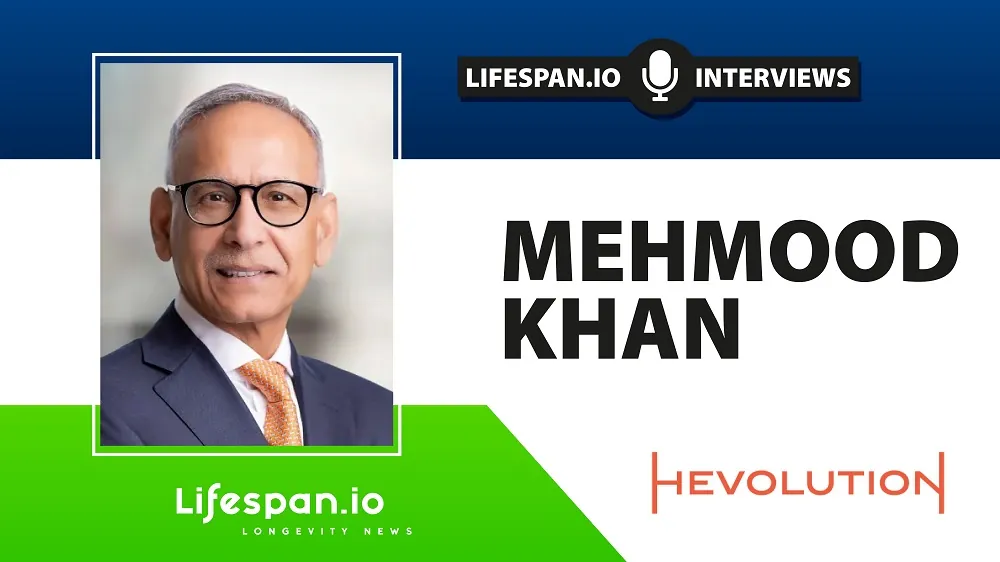In an era where the science of aging is gaining momentum, the interaction between policy and health innovation is becoming more crucial. Dr. Mehmood Khan, a pivotal figure in this sphere, provides insightful perspectives on the intersection of aging policy, healthspan, and collaborative efforts through his leadership at Hevolution. A recent interview with Khan sheds light on his transformative journey and the pressing issues surrounding aging research.
The Journey Into Longevity Advocacy
Dr. Khan's career trajectory uniquely positions him within the longevity movement. With a robust background in endocrinology and a leadership role at Hevolution, the world’s most well-funded healthspan-focused nonprofit, he emphasizes the importance of shifting the dialogue from merely extending lifespan to enhancing healthspan—the period of life spent in good health.
“Longevity is not the target; healthspan is.” – Dr. Mehmood Khan
The Distinction Between Healthspan and Longevity
Dr. Khan articulates why it’s vital to distinguish between healthspan and longevity in public discourse. He states, “If we make this purely about getting people to live longer, it becomes interpreted as more dependency.” He further explains that while longevity often draws negative connotations regarding economic burdens on healthcare resources, healthspan emphasizes productivity and well-being.
To illustrate this distinction, consider the following:
| Aspect | Longevity | Healthspan |
|---|---|---|
| Definition | Living longer life, regardless of health | Living a longer life in good health |
| Public Perception | Economic burden and dependency | Improving productivity and well-being |
| Policy Focus | Healthcare costs | Public health and economic benefits |
Hevolution's Strategic Role
Established under royal decree, Hevolution is dedicated to funding healthspan research globally. Its mission is to democratize healthspan extension, ensuring equitable access to advancements in longevity science. Dr. Khan highlights the importance of collaborations with various local and international organizations, including the WHO, to address global aging challenges.
The Bioethics of Aging Research
The ethical implications of healthspan research are paramount. Dr. Khan emphasizes that discussions surrounding aging should involve bioethicists at the outset, ensuring inclusive understanding and community input in research initiatives. He cites the importance of understanding aging within its global context:
| Challenge | Proposed Solution |
|---|---|
| Geographic disparities in aging research | Engage local experts and organizations in underrepresented regions |
| When to intervene in the aging process | Establish ethical guidelines on intervention timelines |
Collaboration and Innovative Funding
Hevolution aims to catalyze scientific partnerships and funding in aging by evaluating research programs through a scalability lens. This approach not only targets cutting-edge scientific research but also aligns with global health objectives. In Khan's words, “We’re catalyzing collaboration; this is a team sport.”
“If you want to go fast, go alone. If you want to go far, take everybody with you.” – African Proverb
Looking Ahead: Optimism and Challenges
Despite the inherent challenges within aging research—such as the necessity of accurate biomarkers of aging and public perceptions of longevity research—Dr. Khan is confident about the future. He emphasizes the public health and economic imperatives driving this research forward. As he states:
“The science is now optimistically telling us that something can be done about [aging].”
Concluding Remarks
The dialogue surrounding aging is evolving, and leaders like Dr. Mehmood Khan are guiding that conversation towards a future focused on healthspan, collaboration, and ethical responsibility. Hevolution’s initiatives and potential for positive societal impact highlight the importance of policy and advocacy in advancing the field of aging research.
References
[1] Longevity Summit Dublin, 2022
[2] Hevolution Nonprofit Overview
[3] Advances in Healthspan and Longevity Research
[4] Lifespan.io














Discussion